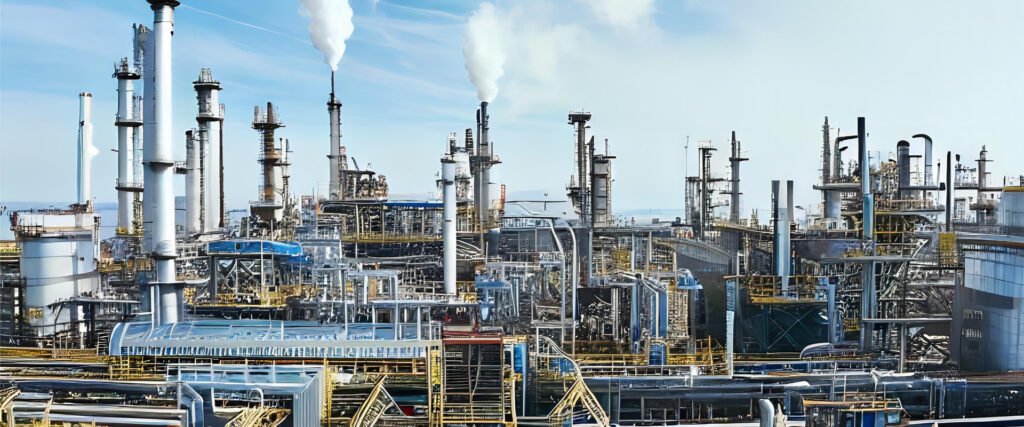Your cart is currently empty!
TEL:08615998857658

Oil antioxidants lubricant additives
Antioxidants are important additives in lubricating oils to prevent or slow down the oxidation process.
Description
| Antioxidants are important additives in lubricating oils to prevent or slow down the oxidation process. Oxidation can lead to the formation of harmful by-products, sludge, and varnish in the oil, which can compromise the performance of the lubricant and the machinery it is protecting. Antioxidants help extend the service life of the lubricating oil and maintain its effectiveness. There are several types of antioxidants used in lubricant formulations, and they work by either scavenging free radicals or inhibiting the chain reactions that lead to oxidation.
Common types of antioxidants used in lubricants include: Phenolic Antioxidants: These compounds are based on phenols and are effective at preventing the formation of sludge and deposits in the oil. Amine Antioxidants: These antioxidants are based on amine compounds and are often used in combination with phenolic antioxidants for enhanced performance. Metal Deactivators: Certain metals can catalyze oxidation reactions. Metal deactivators are added to neutralize the catalytic effects of these metals, helping to prevent oxidation. Sulfur-Containing Compounds: Compounds containing sulfur, such as dialkyl polysulfides, can act as antioxidants in lubricants. Phosphorus-Containing Compounds: Some lubricant additives contain phosphorus compounds, which can contribute to antioxidant properties. It’s important to note that the selection of antioxidants depends on the specific application and the type of lubricant. Different industrial sectors, such as automotive, aviation, and industrial machinery, may have different requirements for their lubricating oils, and formulations can be tailored accordingly. Lubricant additives, including antioxidants, play a crucial role in maintaining the performance and longevity of machinery by protecting against factors like oxidation, wear, and corrosion. |
Oil Antioxidants: Protecting Your Lubricant from the Heat!
Oil antioxidants play a critical role in modern lubricants, safeguarding them from the damaging effects of heat and oxidation. Here’s a detailed breakdown of their function, benefits, and key considerations:
Function:
- Preventing oxidation: Oil undergoes oxidation when exposed to high temperatures and air, leading to breakdown and the formation of harmful deposits. Antioxidants act as “scavengers,” capturing free radicals generated during oxidation and preventing them from damaging the oil.
- Extending oil life: By slowing down oxidation, antioxidants help extend the oil’s lifespan, allowing for longer drain intervals (following manufacturer recommendations).
- Maintaining performance: Oxidation can lead to increased viscosity, decreased lubrication, and reduced engine efficiency. Antioxidants help maintain the oil’s properties and ensure optimal engine performance.
Types:
- Phenolic antioxidants: Highly effective at high temperatures but can be depleted quickly.
- Amine antioxidants: Synergistic with phenolics, providing longer-lasting protection.
- Phosphorous antioxidants: Offer some anti-wear properties alongside antioxidation.
- Synthetic antioxidants: Modern formulations offering improved thermal stability and performance.
Benefits:
- Reduced oil consumption: Extended oil life translates to less frequent oil changes, reducing overall consumption.
- Improved engine protection: By preventing oxidation-related deposits, antioxidants protect critical engine components from wear and tear.
- Lower maintenance costs: Extended oil drain intervals can contribute to lower maintenance costs.
Selection and Compatibility:
Choosing the right oil antioxidant depends on several factors:
- Base oil type: Mineral, synthetic, or semi-synthetic oils require specific types of antioxidants for compatibility.
- Operating conditions: Severe temperatures or high pressure might necessitate specific antioxidant properties.
- Compatibility with other additives: Ensure the chosen antioxidant doesn’t interfere with other components in the oil formulation.
Consulting a qualified lubricant specialist or mechanic is recommended for selecting the optimal oil antioxidant for your specific needs.
Additional Considerations:
- Environmental regulations: Some traditional antioxidants are facing environmental concerns, leading to the development of more eco-friendly alternatives.
- Emerging technologies: New organic and inorganic antioxidants are being explored for potential performance and sustainability benefits.
Remember: Using the right oil antioxidant is crucial for maintaining your engine’s health and performance. Consulting an expert ensures you make an informed decision for optimal lubrication and engine protection.
I hope this information helps! Feel free to ask if you have any further questions about specific oil antioxidants or their suitability for your needs.







Reviews
There are no reviews yet.